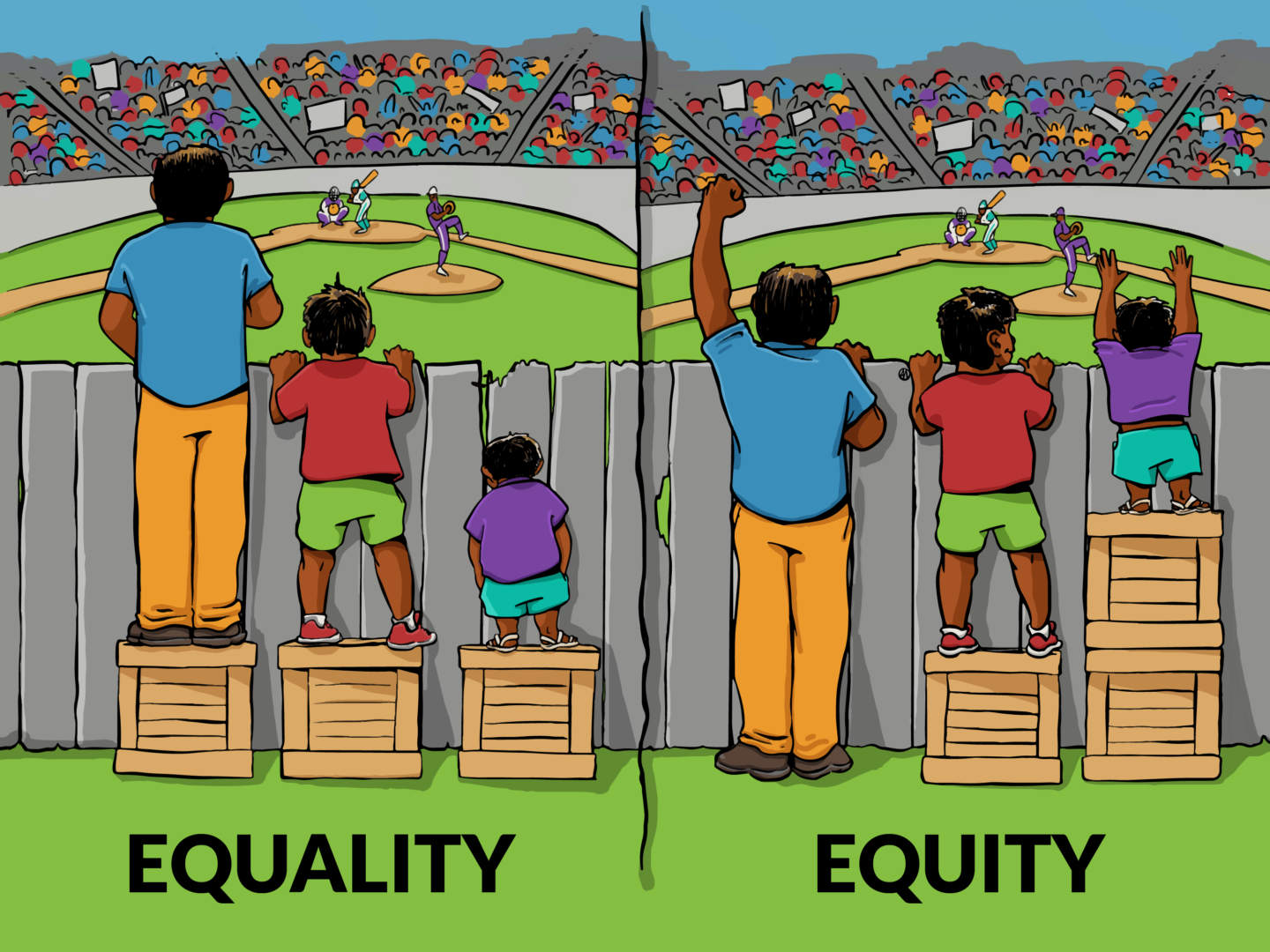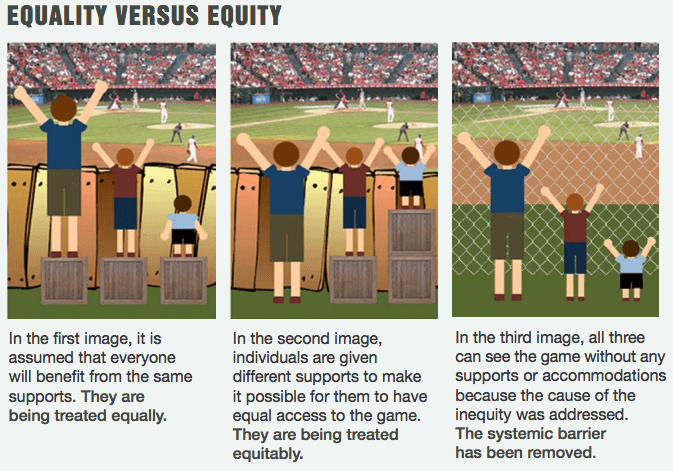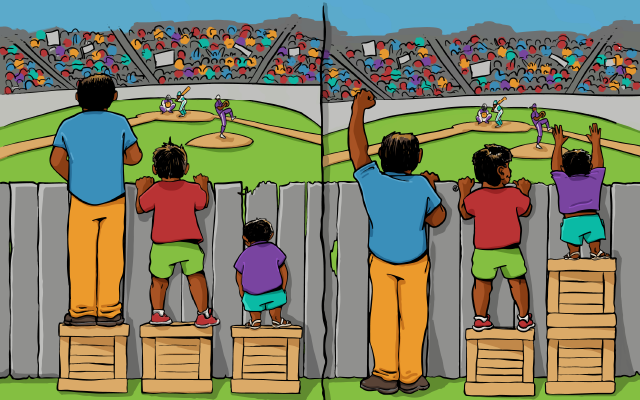What is Equity?
You may have seen the comic below, which depicts three individuals watching a baseball game over a fence. It’s a simple image, but it shows important differences between equality and equity.
In the first panel, everyone is given the same assistance. They are treated equally, each with one box to stand on. But, as you can see, the people in this situation do not start on an equal playing field, and the outcomes are inherently unequal.
To achieve the same outcomes—everyone enjoying the ability to watch the baseball game—the shortest person in the group needs an extra leg up.

In the second panel of this comic, the tallest person no longer has a box to stand on and the shortest person now has two. While the tallest person is not receiving any additional assistance, his ability to watch the baseball game has not been diminished. Since the shortest person has received additional assistance, all three are now able to experience the same outcome: enjoying the baseball game.
Equity vs. Equality
While equality means treating everyone the same, equity means providing everyone with the resources and assistance they need to achieve successful outcomes. Equal treatment is important, but in a world where we all are different, with different experiences, abilities, disabilities, and resources available for our use, we inherently need different things in order to be successful. Equity addresses our differences to ensure that all people, no matter where they start, can have the opportunity to achieve successful outcomes.
Oral Health Equity in North Carolina
The Foundation for Health Leadership & Innovation’s North Carolina Oral Health Collaborative (NCOHC) is working to change the conversation toward a focus on equitable oral health care.
North Carolina is experiencing an oral health crisis that is felt disproportionately across the state. NCOHC has identified several drivers of inequity, including long distances to reach the nearest dentist, high treatment costs (and lack of insurance to mitigate those costs), and language and cultural barriers.
To ensure that all North Carolinians have the opportunity and ability to access quality oral health care, hundreds of thousands of people are going to need additional resources. These resources include, but are not limited to, Spanish language forms and bilingual staff, financial assistance, and more dental offices in rural communities.
NCOHC is collaborating with oral health professionals and community leaders across the state to plan and implement equitable solutions to our oral health crisis. If you want to learn more, be sure to check out NCOHC’s resources on Oral Health Equity. Join our email list to receive regular updates on NCOHC’s work and learn how you can get involved.
Be sure to tune in next week for our breakdown of the systemic barriers to oral health and how we can reach the equitable landscape depicted in the third panel of the comic strip below!




